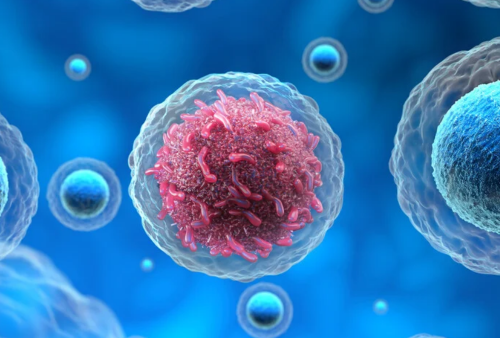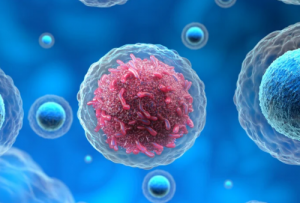
Precious metal compounds, particularly platinum-based and ruthenium-based compounds, have garnered significant attention in cancer treatment due to their unique chemical structures and mechanisms. These compounds, often in the form of chlorides and nitrates, are at the forefront of both research and clinical applications, providing promising options for targeting various types of cancer.
 [1]
[1]
Platinum compounds, such as cisplatin, have already made a profound impact in oncology, while ruthenium compounds, especially [Ru(NH₃)₆]Cl₃ (hexammine ruthenium trichloride), are emerging as a new generation of anticancer agents. Let’s have a detailed discussion of their types, features, and uses.
Platinum-based compounds are some of the most well-established chemotherapy agents. The three major platinum drugs—cisplatin, carboplatin, and oxaliplatin—are widely used to treat a variety of cancers, including testicular, ovarian, bladder, lung, and colorectal cancers.
Platinum compounds work by binding to DNA in cancer cells, forming crosslinks that inhibit DNA replication and transcription. This triggers apoptosis, or programmed cell death, which effectively halts cancer cell growth and proliferation. Cisplatin, for example, binds to purine bases in the DNA, causing structural changes that lead to cell death. The success of cisplatin has led to the development of second-generation drugs like carboplatin and oxaliplatin, which offer improved efficacy and reduced toxicity.
Ruthenium compounds are newer contenders in cancer treatment, with growing evidence supporting their efficacy in combating drug-resistant cancers and reducing the side effects commonly seen in platinum-based therapies. One of the most promising ruthenium compounds is hexammine ruthenium trichloride ([Ru(NH₃)₆]Cl₃), which shows potent anticancer activity in preclinical studies.
Unlike platinum compounds, ruthenium-based drugs interact with cancer cells in a way that leads to reduced side effects, as they are activated in the low-oxygen (hypoxic) environments typically found in tumors. This selective activation minimizes damage to healthy cells, allowing for more targeted therapy. Ruthenium compounds also have the potential to bind to both DNA and proteins, disrupting multiple cellular processes essential for cancer cell survival.
Additionally, ruthenium compounds can mimic iron in the body, enabling them to infiltrate cancer cells more easily. They can trigger apoptosis and other forms of cell death through various pathways, including oxidative stress and interference with the cancer cell’s energy production.
While platinum-based drugs are effective, they come with significant side effects, including nephrotoxicity, neurotoxicity, and gastrointestinal toxicity. These limitations have driven the search for alternatives, and ruthenium-based compounds present several advantages:
Related reading: Noble Metal Compounds: Varieties and Applications
The development of platinum and ruthenium-based precious metal compounds has revolutionized cancer treatment. Platinum drugs like cisplatin, carboplatin, and oxaliplatin have a long-standing history of success in oncology, though they are often limited by their toxicity and the development of drug resistance. On the other hand, ruthenium-based compounds, such as hexammine ruthenium trichloride, are emerging as promising alternatives due to their selective activation in tumors, reduced toxicity, and potential to combat resistant cancers.
As research progresses, these precious metal compounds are likely to play an even larger role in personalized and targeted cancer therapies, offering hope for more effective and less toxic treatment options.
Advanced Refractory Metals (ARM) specializes in producing high-purity precious metal compounds, particularly platinum-based and ruthenium-based, for pharmaceutical and research applications. We offer customized solutions to meet your specific requirements. Contact ARM for more information!
Reference:
[1] Hathaway, B. (2023, December 7). In cancer treatment, new evidence that the neighborhood matters. YaleNews. Retrieved September 29, 2024, from https://news.yale.edu/2023/12/07/cancer-treatment-new-evidence-neighborhood-matters
Copyright © 1994-2024 Advanced Refractory Metals owned by Oceania International LLC, All Rights Reserved.